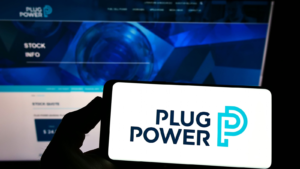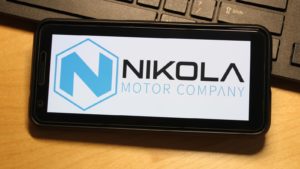What makes these hydrogen stocks particularly appealing is the recent positive developments in their fundamental characteristics. They are also largely off the radars of most other investors, making them fundamentally contrarian in nature.
Hydrogen is expected to play a crucial role in the global energy mix. The stocks on our list are at the forefront of this transition, as well as being riskier with a higher implied upside than the more established names in the market.
So, for those comfortable with taking large risks, here are three hydrogen stocks for investors to consider.
Plug Power (PLUG)

Plug Power (NASDAQ:PLUG) focuses on hydrogen fuel cell systems. The company aims to provide green energy solutions to a variety of industries, including logistics and material handling.
I’ve long been a fan of PLUG for investors who live to take extreme risks in the hydrogen market. As InvestorPlace noted previously, after a significant downturn, any positive developments could trigger a resurgence in PLUG stock. The company has addressed its previous “going concern” issues, and investors with a high-risk tolerance might consider taking a small position.
PLUG is definitely one of those companies flying beneath the radar since its risk profile is so extreme. That includes a class action lawsuit for investors who incurred substantial losses.
Still, despite all these difficulties, the implied upside for PLUG is 156.25%, as referenced by Wall Street analysts. It also comes with a Hold rating, suggesting there could be something in it for those comfortable with large risks.
Linde (LIN)

Linde (NYSE:LIN) provides industrial gases, including hydrogen.
I think LIN might be overlooked due to hydrogen being a relatively new industry, and investors are naturally looking for disruptive startups and not well-established businesses in this industry. LIN is the antithesis of PLUG in almost every respect.
LIN is a Dividend Aristocrat with 32 years of dividend growth behind it. It also has a strong trajectory for these dividend payments, with dividend growth of 8.99% at the time of writing.
Full-year revenue reached $32.9 billion, with a 5% increase in underlying sales. Adjusted operating profit was $9.1 billion, marking a 15% year-over-year increase. Adjusted EPS rose 16% to $14.20. Operating cash flow for Q4 increased by 30% to $2.7 billion, with free cash flow after capital expenditures totaling $1.6 billion. The company returned $6.4 billion to shareholders in 2023 through dividends and share repurchases.
Nikola (NKLA)

Nikola (NASDAQ:NKLA) produces hydrogen-electric vehicles (FCEVs). Its focus includes trucks and powertrain solutions for commercial transportation.
In Q1 2024, Nikola produced 43 FCEV trucks and sold 40 to wholesalers. That follows the production and delivery of 35 trucks in Q4 2023, demonstrating steady growth. The company is developing its HYLA brand to support its hydrogen trucks, including agreements with hydrogen producers and infrastructure development for refueling stations and mobile refuelers.
The future of hydrogen vehicles is highly speculative, and in NKLA’s case, there’s insufficient proof of widespread demand. It’s due to this speculation that NKLA has a substantial upside, as it trades for around 65 cents at the time of writing.
No amount of analysis can reveal the future, especially when things are this early for hydrogen vehicles. Still, NKLA is one of the companies at the forefront of this new industry, so a small investment could lead to significant gains if this speculation pays off.
On the date of publication, Matthew Farley did not hold (either directly or indirectly) any positions in the securities mentioned in this article. The opinions expressed are those of the writer, subject to the InvestorPlace.com Publishing Guidelines.
Matthew started writing coverage of the financial markets during the crypto boom of 2017 and was also a team member of several fintech startups. He then started writing about Australian and U.S. equities for various publications. His work has appeared in MarketBeat, FXStreet, Cryptoslate, Seeking Alpha, and the New Scientist magazine, among others.
